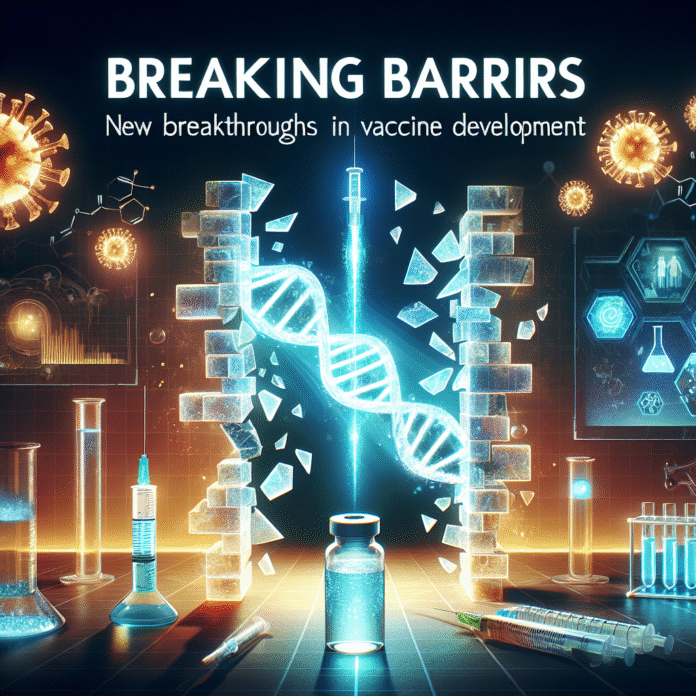In the quest to safeguard public health, vaccine development has rapidly evolved over the last few years. Technological advancements, coupled with unprecedented global collaboration, have led to breakthroughs that promise not only enhanced effectiveness but also faster production and distribution. Here, we explore some of the latest innovations reshaping the landscape of vaccine biology and their implications for future pandemics and endemic diseases.
Accelerated Development Through mRNA Technology
One of the most significant breakthroughs in vaccine development has been the advent of messenger RNA (mRNA) technology, exemplified by the Pfizer-BioNTech and Moderna COVID-19 vaccines. Unlike traditional vaccines, which often use inactivated pathogens or protein subunits, mRNA vaccines instruct cells to produce a harmless piece of the virus, initiating an immune response without causing disease. This approach has enabled accelerated vaccine development, allowing vaccines to go from concept to use in record time.
Researchers now understand how to adapt mRNA platforms for other diseases, including influenza, Zika, and even cancer. This versatility means that future vaccines could be tailored rapidly to respond to emerging infectious diseases.
Optimizing Vaccine Delivery Systems
Innovations in vaccine delivery methods are also breaking barriers. Needle-free delivery systems, such as microneedle patches and aerosolized vaccines, are being developed to enhance accessibility, particularly in low-resource settings. These methods can improve patient comfort and increase uptake, especially among populations hesitant about traditional injections.
Furthermore, some researchers are exploring novel nanoparticle-based systems that can target specific cells for more effective immune responses. These advancements could lead to vaccines requiring fewer doses while maintaining or enhancing efficacy.
Personalized Vaccines: The Future of Immunization
Personalized medicine has entered the vaccine arena with promising results. Technologies that utilize genomic sequencing allow for the creation of tailor-made vaccines that target an individual’s specific immune response. This approach could lead to higher effectiveness and fewer side effects, as vaccines could be crafted to suit the recipient’s unique biological makeup.
Carrying this idea further, researchers are investigating the use of vaccine platforms that can adapt in real-time to mutations in pathogens. This could prove crucial in the fight against rapidly mutating viruses, ensuring that vaccines remain effective even as pathogens evolve.
Global Collaboration: A New Era of Research and Development
The COVID-19 pandemic revealed both the fragility and resilience of global health systems. Rapid information sharing and collaboration across borders have become essential components of modern vaccine development. Initiatives such as COVAX demonstrate how partnerships between governments, NGOs, and private sectors can lead to broad vaccine distribution efforts, ensuring that low- and middle-income countries are not left behind.
Moving forward, this spirit of collaboration is likely to continue, accelerating research and development and ensuring that new vaccines can be produced and disseminated efficiently across the globe.
Overcoming Challenges: The Road Ahead
Despite these breakthroughs, challenges remain. Vaccine hesitancy, logistical hurdles, and inequitable access to vaccines continue to pose significant barriers to achieving global vaccination goals. Efforts to educate communities about vaccine safety and efficacy are vital in overcoming skepticism and building trust.
Moreover, as vaccine technology advances, keeping pace with regulatory frameworks is crucial. Ensuring that safety and efficacy standards remain high while adapting to new technologies will demand collaboration among scientists, policymakers, and regulatory agencies.
Conclusion
As we look to the future, the breakthroughs in vaccine development represent a powerful tool in the ongoing battle against infectious diseases. By leveraging new technologies, optimizing delivery systems, and embracing global collaboration, we can build a more resilient public health infrastructure. The lessons learned during the COVID-19 pandemic, coupled with the innovative spirit of the scientific community, promise to break barriers and enhance our ability to respond to future health crises. The future of vaccine development is not only about protection; it’s about empowerment, accessibility, and ultimately, safeguarding humanity.






